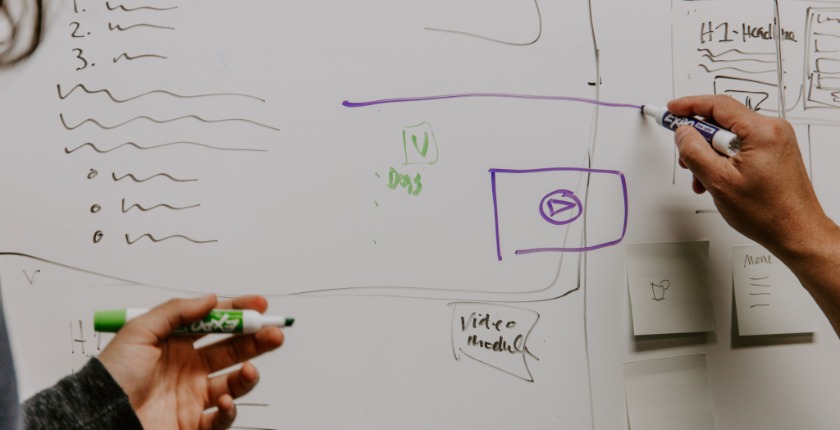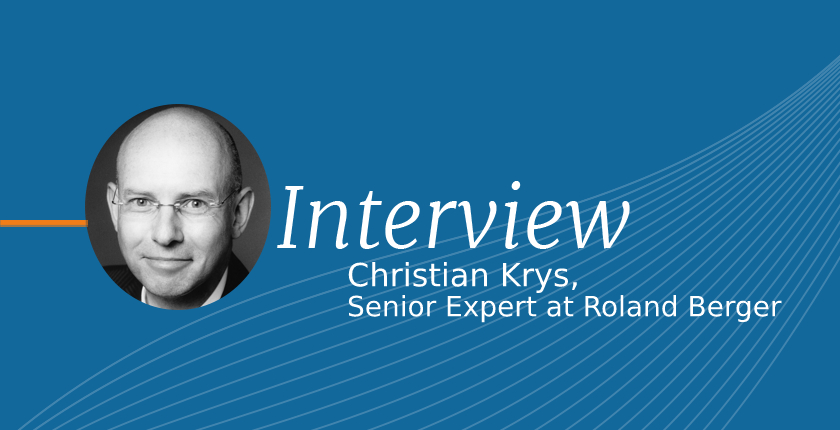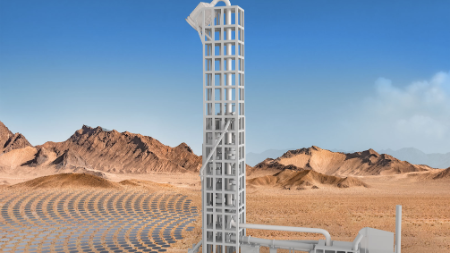Interviews - August 26, 2019
Christian Krys, Expert of the month – July 2019!


Written by Sabrina Cipullo 5 min read
This month our award goes to Christian Krys as a recognition of his hard work and dedication, Thank you so much for your great contribution!
In this interview, we had the chance to learn more about Christian and his work at Roland Berger, as well as his passions and drivers for being an Advisory Expert at the Solar Impulse Foundation.

Where do you work, what is your field of expertise?
After having studied electrical engineering and management science I started my professional career at the management consultancy Roland Berger. Here, I am working in the Roland Berger Institute, a think-tank dealing with forward looking thinking. Among many other publications, we produce the Roland Berger Trend Compendium 2030, which describes seven mega-trends that shape our world between now and 2030. Further fields of my expertise are macroeconomics and scenario planning. In addition, I am involved in Roland Berger's Scientific Network and are the head of our PhD program (interestingly, I was a member of the PhD program in 2001/2002, which I some years later (in 2005) started to head).
Could you tell us more about Roland Berger’s activity?
Roland Berger, founded in 1967, is the only leading global consultancy of German heritage and European origin. Roland Berger advises major international industry and service companies as well as public institutions. Our services cover the entire range of management consulting from strategic advice to successful implementation: e.g. new leadership and business models; innovative processes and services; M&A, private equity and restructuring; and management support on large infrastructure projects. With 2,400 employees working from 34 countries, we have successful operations in all major international markets. Our 50 offices are located in the key global business hubs. The consultancy is an independent partnership owned exclusively by 230 Partners.
What is the most challenging part of your work?
The most challenging and at the same time most interesting part is that I always deal with different topics, which are important for the society, the business world and our natural environment. The dynamic of these topics – be it the world of venture capital, developments of the cloud business or technologies like 5G or Autonomous Driving – is exciting and every day I learn new things.
What is the value of being an Expert for you, and more in general what means being part of World Alliance?
Being part of World Alliance is a natural step for me. I was always interested and engaged to save our environment and the world's richness in nature. I like to travel and visited the rainforest in Ecuador, Galapagos Islands, Himalayas in Nepal and Lake Baikal in Russia. These places are incredible beautiful and at the same time so vulnerable. We have to save them. And we can do this not only by political regulations and agreements but also via concrete commercial solutions like such in the 1000 Solutions portfolio of the World Alliance. Think about climate change which threatens the balance of many natural ecosystems – and which can be fought by emission-free cars or renewable energy solutions. To give such solutions a greater public awareness makes the World Alliance to a role model for similar approaches.
Have you get the chance to participate in our Experts’ Challenge, or do you wish to participate in the future ? Why?
So far I didn't have a chance due to professional appointments. I would like to participate but that depends on my professional appointments.
Have you come across any interesting Solution that you would like to see in our 1000 Solutions portfolio? If not do you have any Solutions that you wish to see in our portfolio?
At the moment, a highly discussed environmental problem is the presence of microplastics in our environment. According to the newest studies microplastics is everywhere: In our oceans, in drinking water, in snow, in our air. One solution I would like to see is how to bring microplastics out of our oceans and out of our drinking water (I cannot imagine a solution to bring it out of our air). In the same context, I would like to see a solution to avoid bringing in microplastics into our environment by abrasion of tyres (in a study I read that abrasion of tyres is the biggest source of microplastics).
How do you think the label could be implemented more effectively?
You already work with a lot of powerful organizations. Could a collaboration with organizations like Greenpeace or WWF lead to additional impact?

Written by Sabrina Cipullo on August 26, 2019


